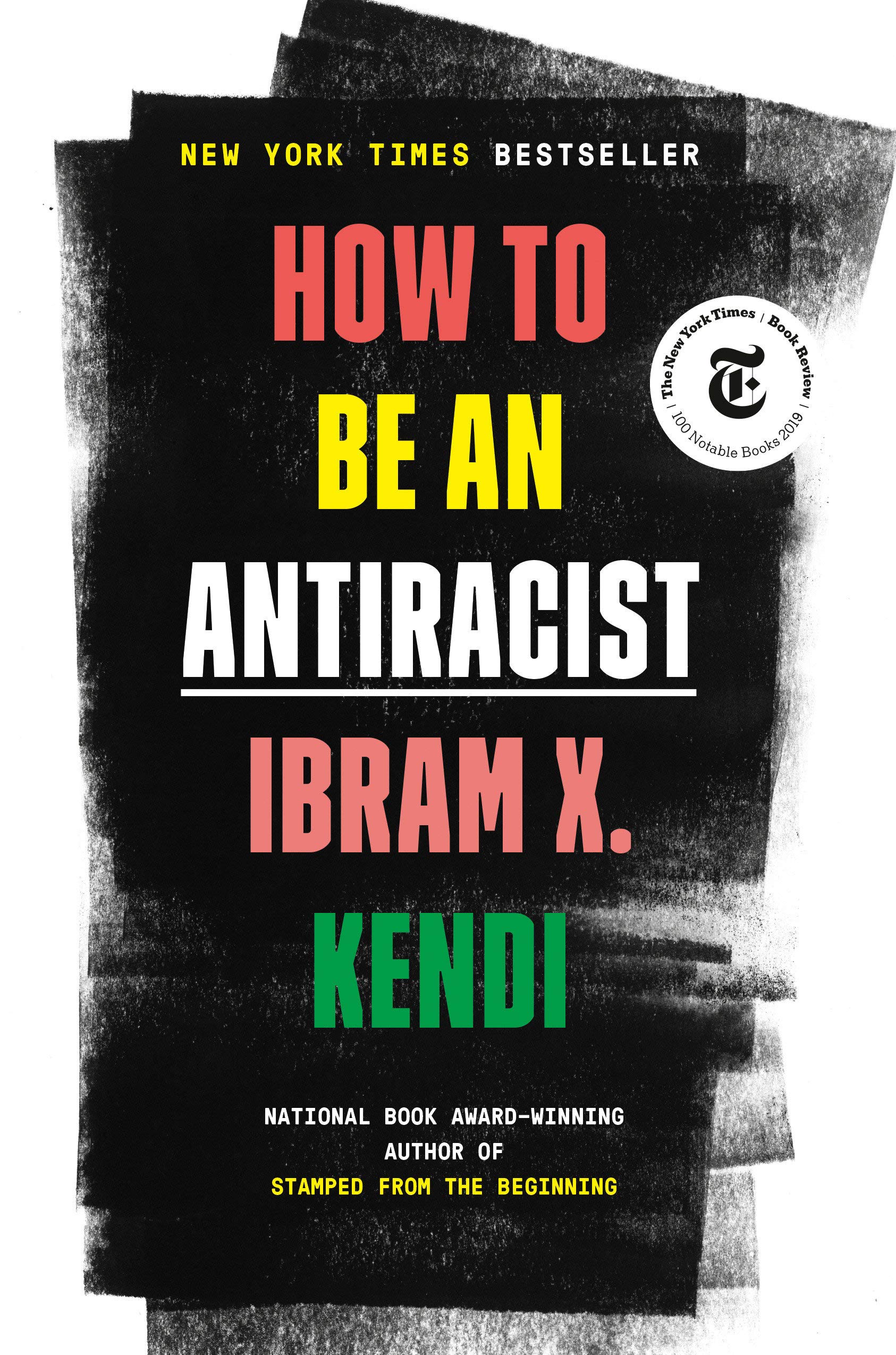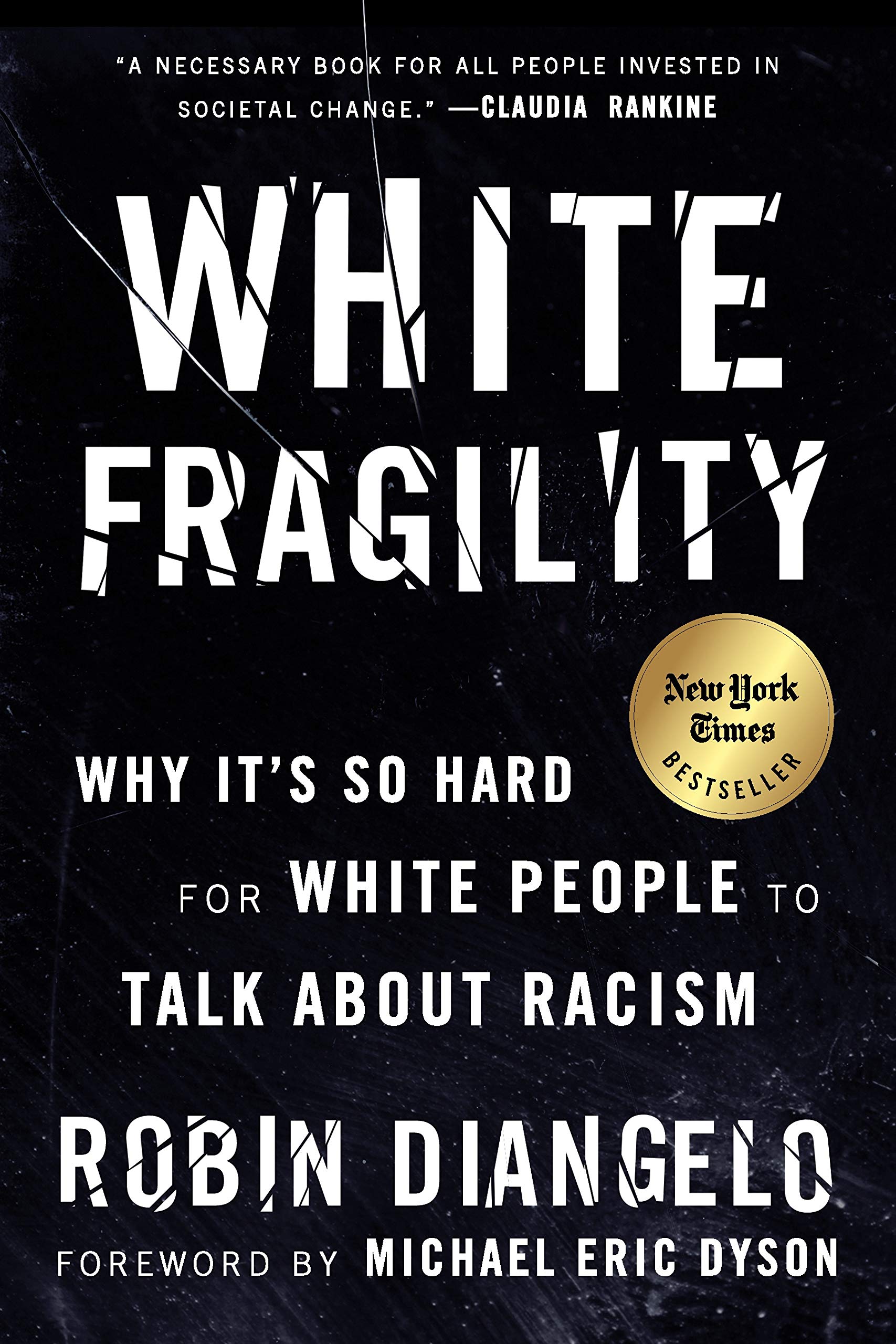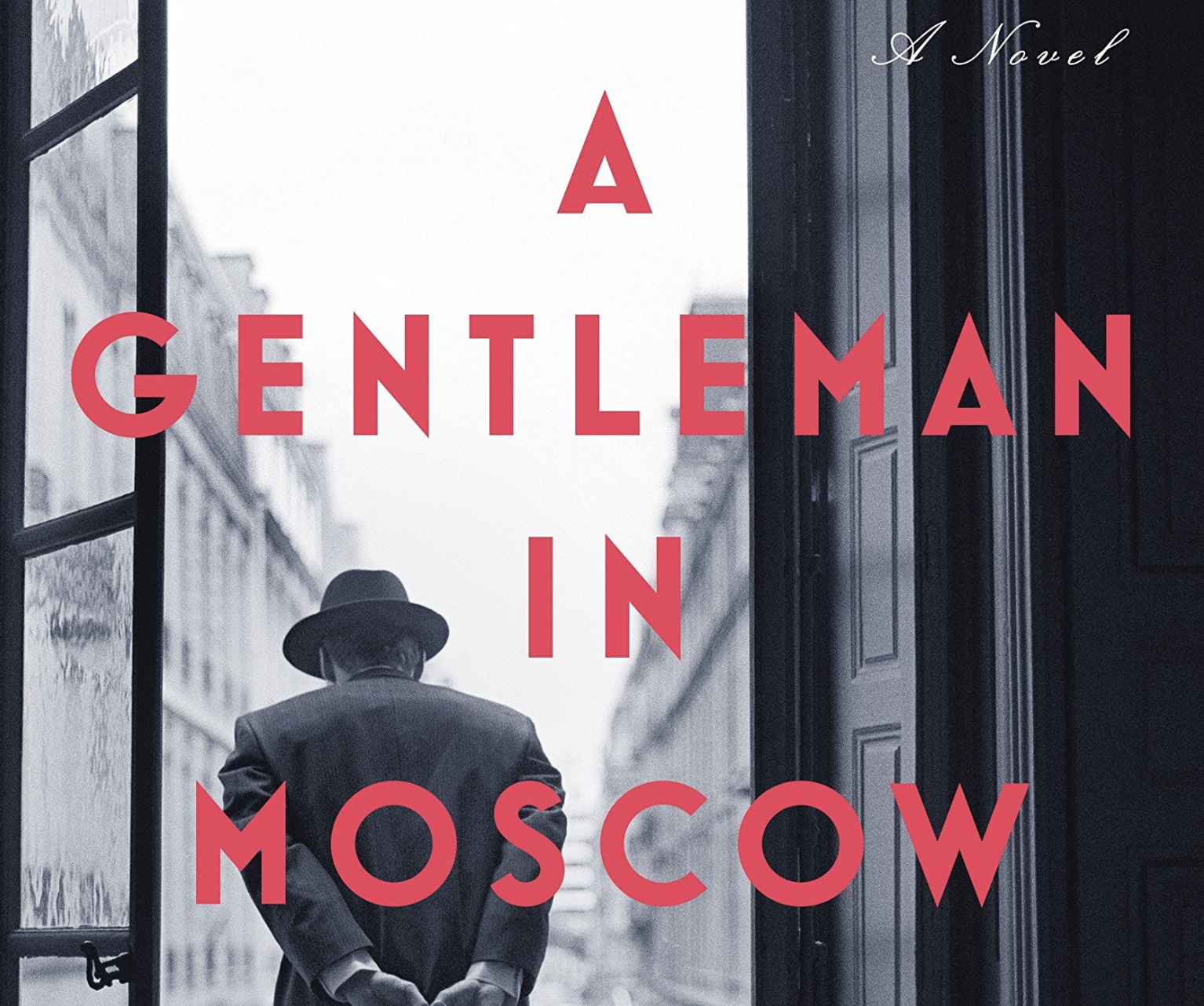As always, I have a lot to learn in life. When the Black Lives Matter movement became the center of the news front, I realized even more deeply how much learning I have ahead of me. I wrote a little bit about that back HERE, and so many people had great input as advice as to how to delve deeper.
Two of the recommended books were these ones that I finished a while back and still haven’t written about:
I learned a lot, but mostly I realized I’m just hitting the tip of the iceberg. This whole issue is deep and wide. So important to keep in the forefront.
It was interesting to learn from a black author as well as from a white author, and I realized more than ever that everyone is coming from such different perspectives which makes racism such a complicated issue to tackle.
Some things I agreed with as I read, and some I didn’t. But I think the bottom line is that there is so much beauty that lies in humility: something I realized as I read that I need to gain a lot more of. Some things in these books were hard for me to take in. At first I put up my defenses. Of course I love everyone, and would never want to judge another race! But both books helped me see how human nature goes and how automatic judgements are part of how we work. I have a lot to change. We all do. I guess that’s the purpose of life, right? To learn and to grow, and sometimes that sure takes a whole lot of humility. Ibram Kendi talked a lot about how our cultures shape us in How to be an Antiracist, for good and for bad and how racism can go both ways. Going after white people instead of racist policies harms everyone involved. We all need to open our minds.
Robin Diangelo, in White Fragility warns “we will not move forward in race relations if we remain comfortable.” “The tendency to believe that being racist/prejudiced is bad causes us to deny that we are that way. We are ‘good people’ after all, aren’t we? if we are ashamed, because being prejudiced is bad, we feel the need to defend our character rather than explore the racial prejudices we absorb so that we might change them.”
I think that is so true. Defensiveness will never help anything in the business of working to understand racism. It is only in humility and trying to see other’s perspectives that we can make changes.
Diangelo says, “We pretend that it will work to teach humans to have no prejudice at all, it just doesn’t work that way. But we can ask, “Am I actively seeking to interrupt racism, and how can I tell?”
Interrupting racism takes courage.
And we as a society sure have lots of work to do.
**links to these books are affiliate linked, only because I love to share things I’m thinking and learning about.**








I also recently read those books, but they both insist that racism is the cause if we don’t have equality of outcome and proportional racial representation. They provided no proof of this central claim at all, and in fact, ignored all possible causes of unequal outcomes, calling even the consideration of these other causes “racist.” Other possible causes such as culture, effort, merit: all these considerations were deemed “racist” when they have nothing to do with race.
The new antiracist movement is worse than a religion, and they will attempt to persecute you or ruin your livelihood if you step a toe out of line. I found this article more useful than both of the two books.
https://medium.com/@sarahadowney/this-politically-correct-witch-hunt-is-killing-free-speech-and-we-have-to-fight-it-7ced038d33ae
Diane. No. I worry for you.
I urge both you and Shawni to continue reading, preferably from black and brown authors. (And also not primarily from Medium, my goodness). Racism does not “go both ways”. It is fundamentally important to recognize that white folks don’t suffer economic or legal persecution for being white.
You worry for me because I’m right about cancel culture?
I am not white, btw — if that matters. And here is someone else who is not white saying basically the same thing I’m saying. Maybe you’ll listen to him, since he’s black? https://www.youtube.com/watch?v=mT2rlJe9cuU
Julie –
rac·ism
/ˈrāˌsizəm/
prejudice, discrimination, or antagonism directed against a person or people on the basis of their membership in a particular racial or ethnic group
Do you not know of any black people who feel this way about white people? Racism can be any race/group feeling the way that is described above about another race/group. So it DOES go both ways. Racism can cause economic and/or legal persecution, but that is not the definition of racism.
Diane, When you say the causes are “culture, effort, merit:” are you suggesting the Black “culture, effort, merit:” are less than White “culture, effort, merit?” The end results are disproportionate poverty and incarceration are indisputable.
Jenny
No, I am suggesting that those things are possible explanatory factors in various gaps such as incarceration, academic achievement, test scores, earnings, etc. So, before we conclude that racism causes these gaps, we should rule out the influence of other possible factors.
It should be obvious that a culture (such as the Mormon culture) which strongly emphasizes the importance of doing the right thing, and the value of education would have lower incarceration rates and higher rates of educational attainment (and thus income) than a culture where there is not as much of an emphasis on those values.
Also, there is no one “black culture” as no race is a monolith. So, don’t worry, I’m not suggesting what you think (that “white culture” is superior to “black culture”).
Sounds like you are suggesting that LDS culture is superior to others. I have read enough about the painful results of LDS conformity, patriarchal culture, lack of female leadership, “purity standards”, forced cheer, and denial of negative aspects to question that premise. All cultures and experiences have different emphasis and strengths.
Jenny, I agree that all cultures have different strengths and weaknesses. I am glad you are the one saying that. LDS culture does have its downsides (such as the issues you mentioned), and I agree that it would not be correct to characterize any culture as superior in all ways to any other culture. However, I maintain that some of the strengths of LDS culture include influencing its members to reach high educational and professional attainment, and low incarceration rates. I believe available statistics will bear this out.
The bright side? Race has nothing to do with it. Anyone can become Mormon and raise their children in the LDS religion. It’s a choice. If it were the case that those groups who have high incarceration rates and low achievement joined LDS en masse and found no improvement in these fields, then we *might* be able to rule out the influence of culture. But certainly not before then! It’s extremely unscientific and a prime example of begging the question to blame gaps in outcome on racism without any examination of other causes.
And, FWIW, I am neither LDS nor white.
Really? Same sex couples and their children can be baptized in the temple as a Mormon? With full church privileges? Better check again…
Diane- that was a very well written article, thanks for sharing! It is so important to hear opposing sides and listen to a lot of different people. Like Shawni said, it takes a lot of humility. I thought an important takeaway from the group in Seattle who were involved with “chaz/chop” was that they realized that all black people didn’t want the same thing or think the same way. When only one idea is being spoken, it is often a red flag. The hard part is listening without attacking when we disagree, so we can learn. We may not become united over ideas but we can be united over our love for people.
I found both these books fascinating and uncomfortable in a good way. They have jump started my desire to understand this whole issue on a deeper level and now I can’t stop reading about it. I think you’re right, as soon as the defensiveness comes down, we can find the truth in the tension and find our part in healing all of it. It’s my favorite when you share books:)
Thanks for sharing your everyday and posing these bigger questions! I love that last quote you share on how can I tell I’m interrupting racism. Something we should be striving for and doing all the time. An aboriginal elder recently said to me “it’s not about who you are but how you are” which I found to be such a useful frame, it’s my actions and what I do that matters, and can be changed, not how I think of myself.
I found a lot of value in clarifying reverse racism. This podcast episode is fantastic: https://3in30podcast.com/captivate-podcast/133-answering-your-questions-about-color-blindness-and-racism-dr-lucretia-berry-and-jasmine-bradshaw/
Shawni,
Good for you for starting to do some important reading. I encourage you to keep up the good works read more books by Black authors. Jason Reynolds books ar great ones to read with lucy. Also, read the above comments and think about how racist attitudes are in your community and culture.
Please note: Dr Kendi does not write “Going after white people instead of racist policies harms everyone involved.” Yes, He says that eliminating Racist Policies and and installing Anti-Racist policies are the most important ways to address racism. I challenge you to go back and find anywhere int eh book where he talks about “going after white people.” I think you are bringing your own interpretation there.
While reading White Fragility, I , too, was uncomfortable. Though I wholeheartedly believe that racism exists, I didn’t agree with everything the author said. It took me a while to realize that was ok. At times, I don’t think she represented my experiences as a white person which in no way makes me question that racism exists. Every day is a chance to learn and do better.
All I have to say is that Black Lives Mattered long before there was a movement. I would encourage anyone to really understand what this group is about. My problem is that grouping any group of people or race together & making assumptions about them is detrimental to our society. The United States is NOT a racist country. If it was why would so many choose to come here. While there is racism the extent that people are creating the cancel culture and pushing critical race theory is DANGEROUS. That would be a good one to study Shawni – critical race theory. Something that is pushed by the Biden administration and is incredibly racist. Basically everything is determined by your race not your individuality. No reason to be scared by that is there?
Shawni, I love your blog and your considerate personality. Thanks for circling back to this topic. I read “Me and White Supremacy” and it was also very thought provoking. It emphasizes self-reflection through writing/journaling, which I found more impactful than just reading. I also read it with a “book club” of a few close friends who I love and trust, which was great.